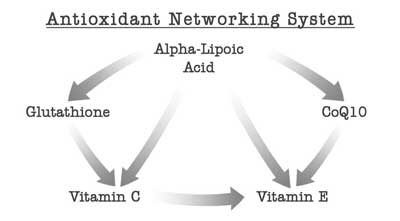Your body is like a finely tuned biological clock. And there’s an important nutrient that can help it “take a licking” as the old Timex commercial used to say, and protect you from cancer, heart disease, inflammation and other maladies.
The nutrient is lipoic acid. According to scientists at Oregon State University, lipoic acid resets the body’s internal clock (its circadian rhythm) improves the heart’s response to stress, keeps your hormones in balance, helps muscles perform more efficiently, balances blood sugar and slows the aging process.
Lipoic acid is a potent antioxidant used for aerobic metabolism. The best food sources include leafy vegetables like broccoli and spinach as well as organ meats.
“This could be a breakthrough in our understanding of why lipoic acid is so important and how it functions,” says researcher Tory Hagen, who teaches biochemistry and biophysics. “Circadian rhythms are day-night cycles that affect the daily ebb and flow of critical biological processes. The more we improve our understanding of them, the more we find them involved in so many aspects of life.”
As you age, your circadian rhythms can slip out of sync.
“In old animals, including elderly humans, it’s well-known that circadian rhythms break down and certain enzymes don’t function as efficiently, or as well as they should,” says researcher Dove Keith. “This is very important, and probably deserves a great deal more study than it is getting. If lipoic acid offers a way to help synchronize and restore circadian rhythms, it could be quite significant.”
In lab tests, the Oregon scientists analyzed changes in the liver’s circadian clock. This rhythm influences how the liver processes fats. When these processes become dysfunctional, they can make you more susceptible to metabolic syndrome, a pre-diabetic condition that also increases your risk of heart disease and cancer.
The researchers found that by feeding older lab animals lipoic acid supplements they could get the liver’s circadian rhythms back on track and straighten out the type of liver problems that are often found in older people.
The researchers say the amount of lipoic acid necessary to help boost liver function in a person adds up to a daily dose of 600 milligrams daily for someone that weighs 150 pounds. That’s about 4 milligrams per pound.








